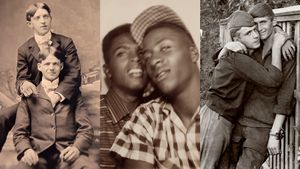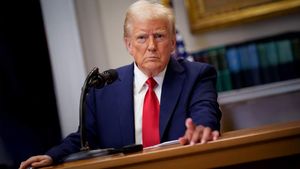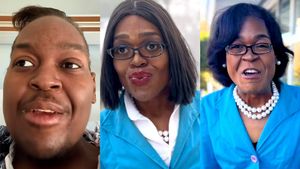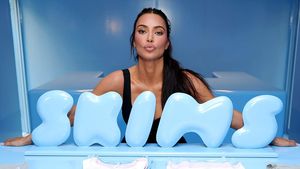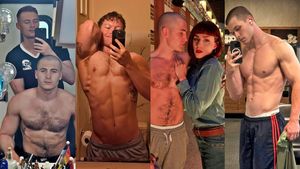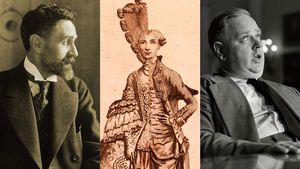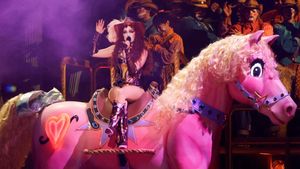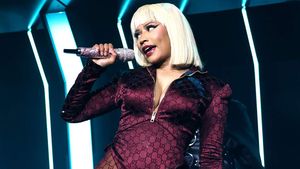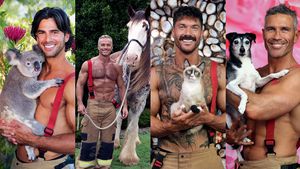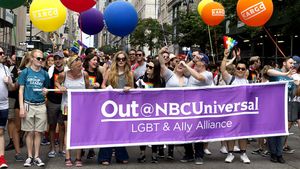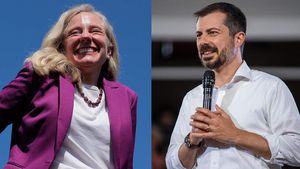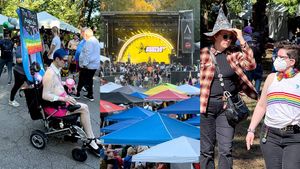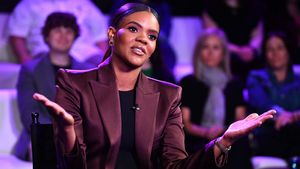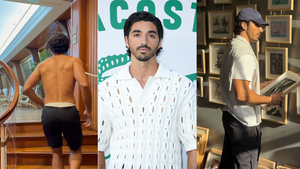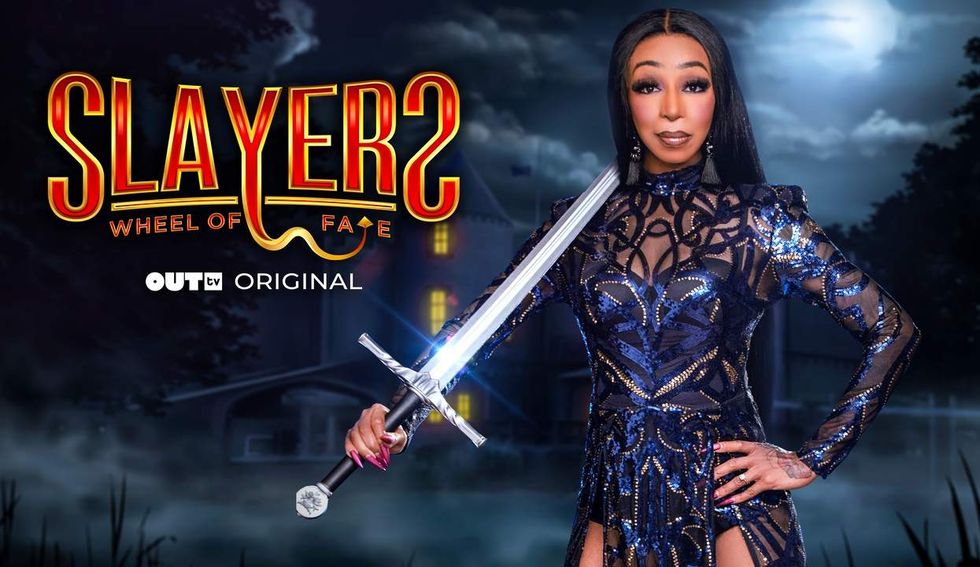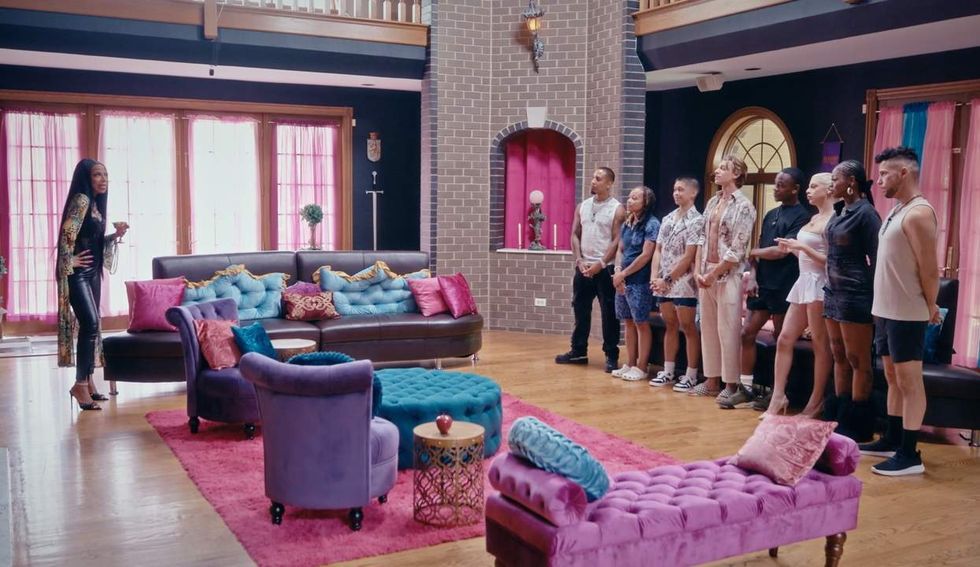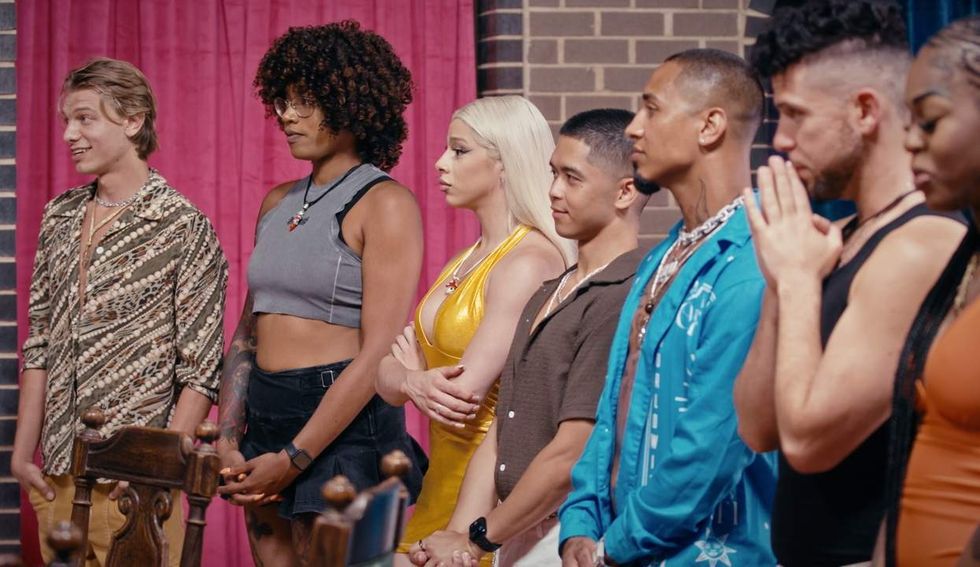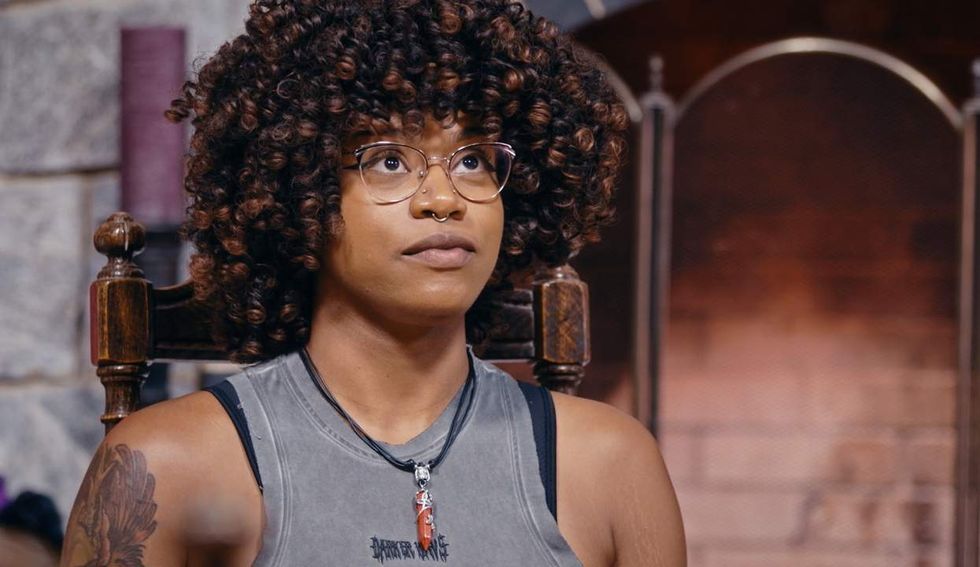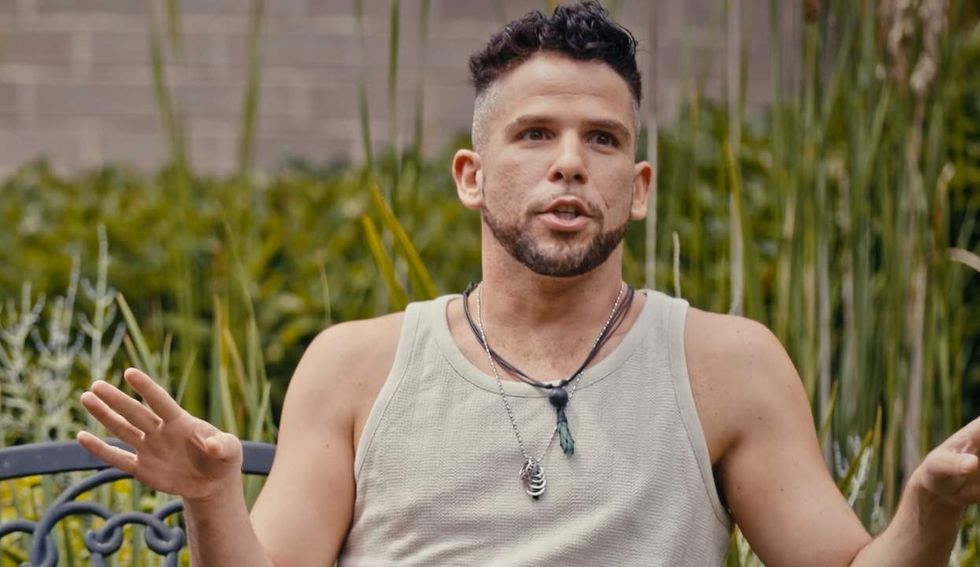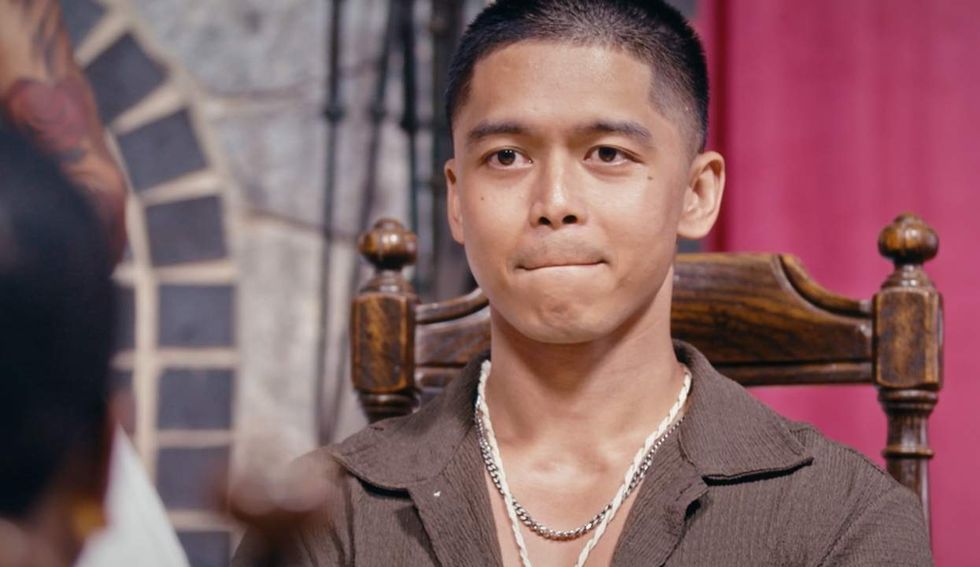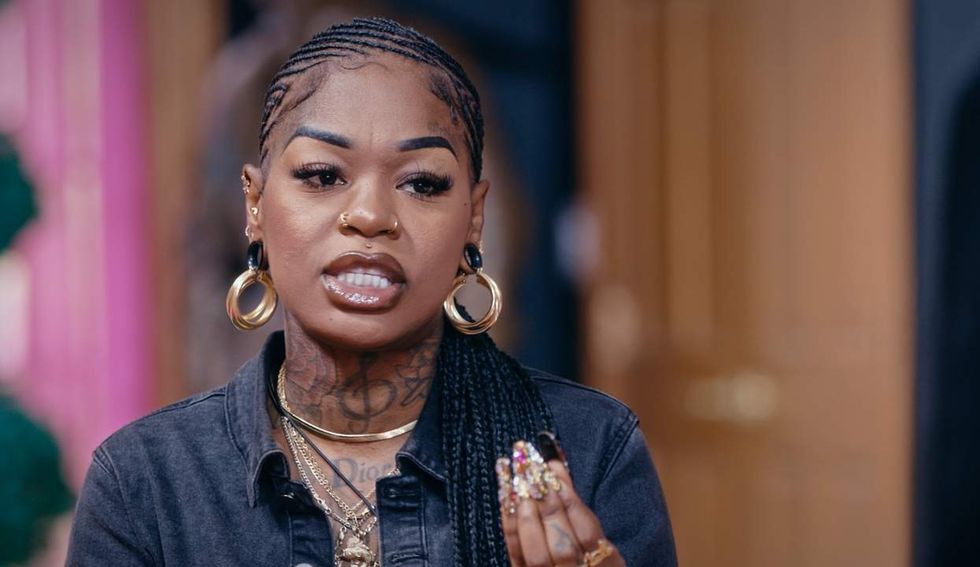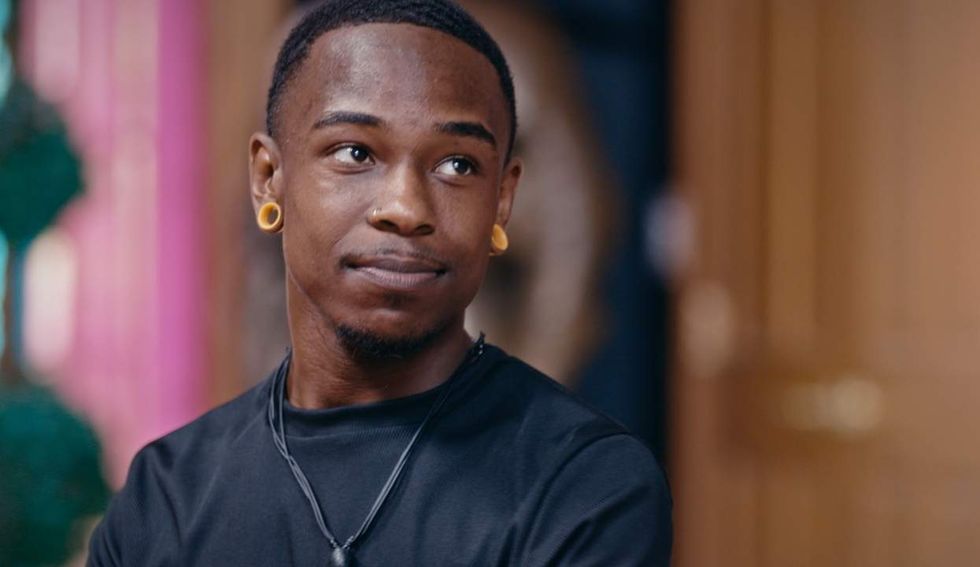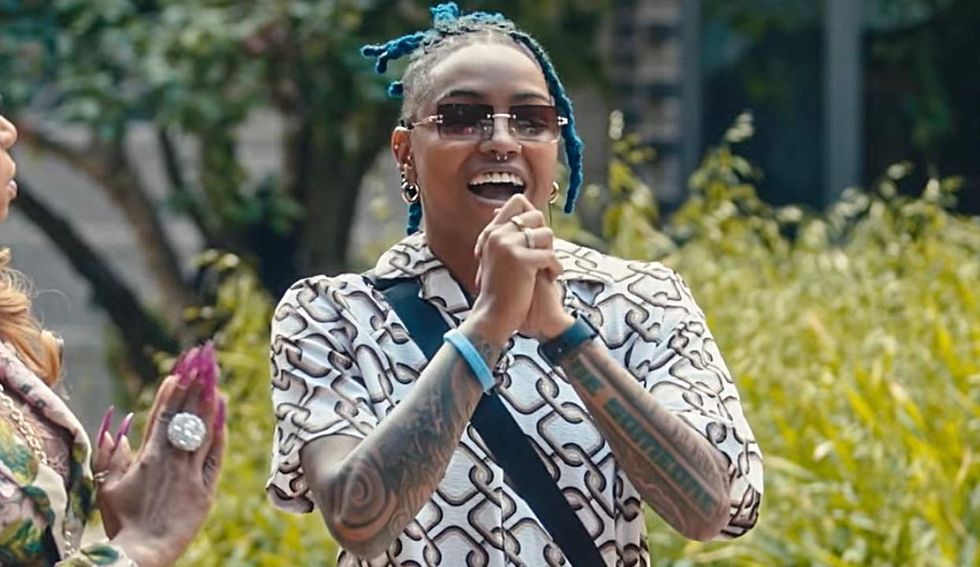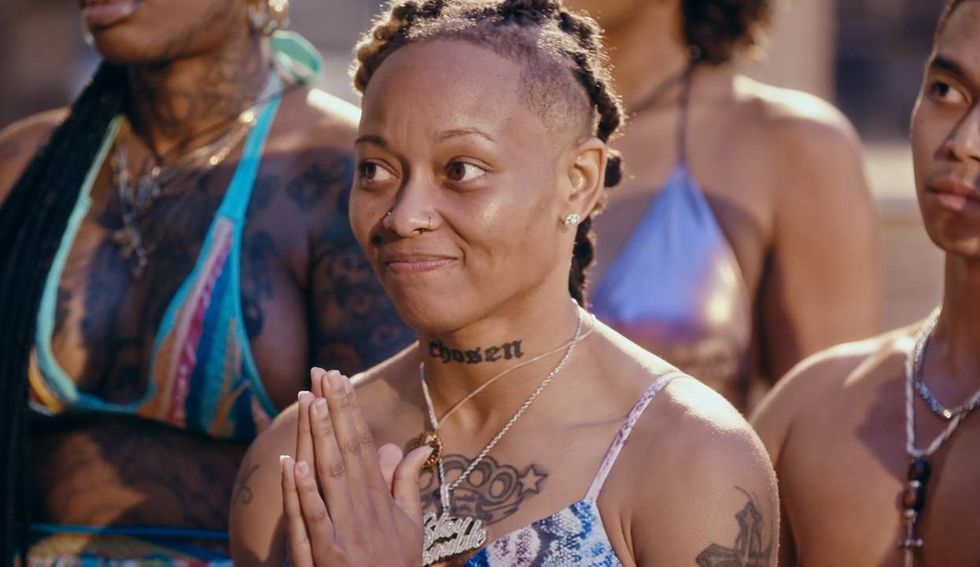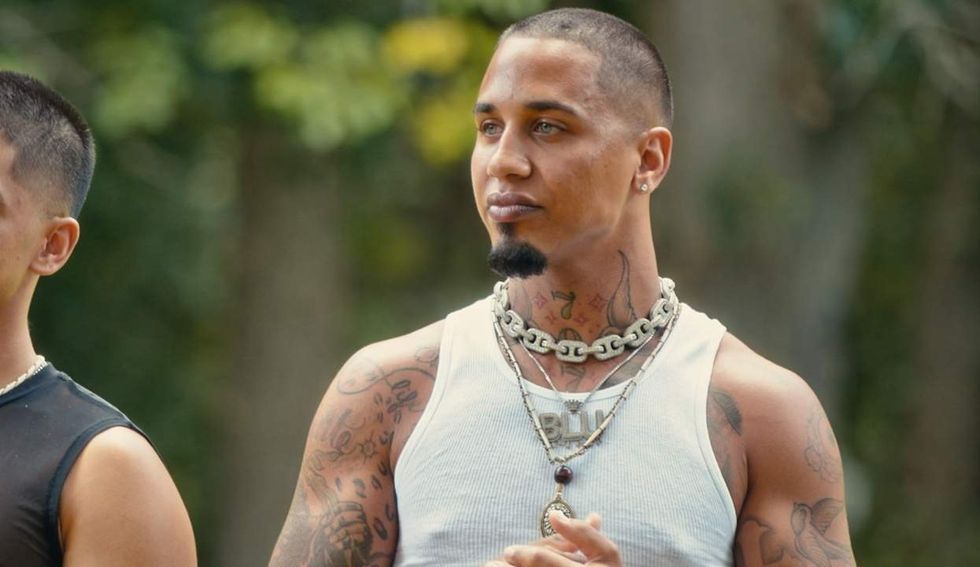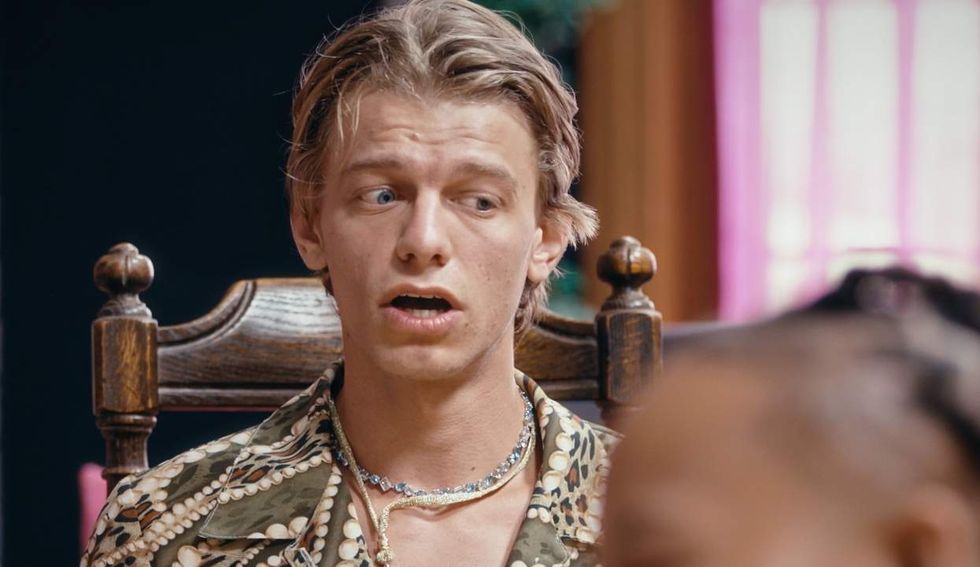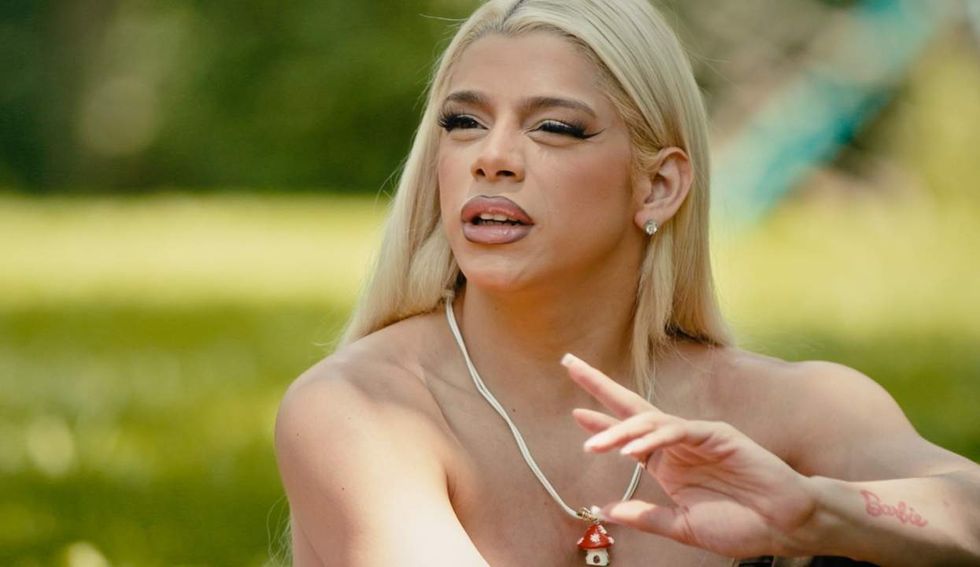"Grow by any means necessary," was the tagline at last night's premiere of Netflix's critically-acclaimed dramedy Dear White People in Los Angeles.
Last season, newly-out-of-the-closet-shy-guy Lionel explored racism in the gay dating scene. Now in its third season, the controversially-titled series boasts a stacked cast of LGBTQ characters and we're thrust even further into the queer community. We meet the hilariously shady yet loveable D'Unte, an HIV+ character named Michael, the show's first openly trans character with Genifer, and a new love interest for our resident lesbian Kelsey.
On the premiere red carpet, PRIDE chatted the show's openly gay creator Justin Simien about the importance of representation, the scope of queer Black stories waiting to be told, and that outrageous Queer Eye parody.
PRIDE: Dear White People feels revolutionary with its portrayals of Black LGBTQ people. Why is it so important for you to share these Black queer stories that aren’t often told?
Justin Simien: Without our stories, we're invisible in a literal, literal way. If we're not human beings in the culture then our Black bodies aren't safe. Our queer bodies aren't safe. That's the place where it comes from.
Lionel, who's kind of been a window into the queer perspective, he represents me a long time ago. I've been wanting to push him into the deep end of the queer experience and really go there. The fact that we got to season three, we all know who Lionel is, we get him now. Now I can kind of push him even further and really give us more of the tea at Winchester. That was like pent up story stuff from long before. And finally, I felt like this is the season where we could do it.
Which makes sense because he's exploring these new worlds in college, where a lot of queer people actually get to do that for the first time.
That's right. And we change so rapidly in college. He can't stay that shy and nerdy. That's what you [normally] do in a TV show, by the way, you make everyone stay the same. It didn't feel right.
Lionel’s love interest this season is HIV+. When one in two gay Black men are predicted to be HIV+ in their lifetimes, that story feels especially important. Why did you want to tell it?
We wanted to give Lionel some kind of frontier to cross, something that has really scared him. We've all had that experience where we come out and we're so liberal and then bam, there's a whole part of this I'm actually intolerant of. We wanted to give Lionel one of those barriers to cross and we talked a lot about what it should be. I wanted love and I wanted a relationship to pull him deeper into himself and who he really is and into owning it all. I think that the love interest does that this season.
At one point, Michael spells out to Lionel what it means to be undetectable (which means the virus is untransmittable according to the CDC). They also talk about using condoms, but I noticed preventative pill PrEP wasn't mentioned?
He very quickly explains to Lionel how it all works. I didn't want to do after school special, I don't want to queer essay y'all. The topic has been covered in enough things before. It's really Lionel's personal prejudice that he's having to overcome so I do leave some of that off-screen but he does mention PrEP, knowing his viral load, using protection, all that kind of stuff.
Why do you think characters like Lionel or Kelsey are still so rare in television?
Because I think that when there's a breakthrough, sometimes there's a step back and people think, 'Oh I got it. I got what that is. I don't need the variations, I don't need the nuance because I already understand what this is. I've met Lena Waithe, I know who she is. I'm used to a Black nerd, got it Lionel. Donald Glover in Atlanta, got it.' And they don't want the stuff in between. So for the second and the third and the fourth, all the variations that make it juicy, it's a little bit harder for those to come through sometimes. That's why I'm here, and why the people who make Pose are here. We've got to get the stories out, we've got to get people used to the many different varied stories so that each one doesn't represent all of us.
In each season of Dear White People, the characters are watching parodies of real TV shows. This season, we get The Handmaid’s Tale and Queer Eye parodies, the latter shows the Fab 5 making over a KKK member's house. How do y'all come up with them?
I shade the things I love. I think part of the point of this show is to say, everything's up for interrogation. Just because you love something doesn't mean you have to worship it blindly. I think in a world where Black folks lost a lot of our heroes, we need some experience loving the thing but also examining the thing and that's what the parodies are. And they're not even full parodies. Especially the Queer Eye one. I actually told Karamo, 'Yo just so you know, this shit is love from me because it's just how I imagine it must feel sometimes to be in these spaces where people are not primed for you.' They're not ready for all that you're bringing but you're on a TV show. So you kind of have to smile and go, 'Okay, we have to let these people be ignorant for this long.' That's kind of what we were making fun of. It's not so much a knock on the show, but on the experience of being the minority ambassador. It's a tough job and that's what we were trying to give some commentary to.
Dear White People Season 3 is on Netflix now. Watch the trailer in the video below.
This interview has been edited and condensed.







